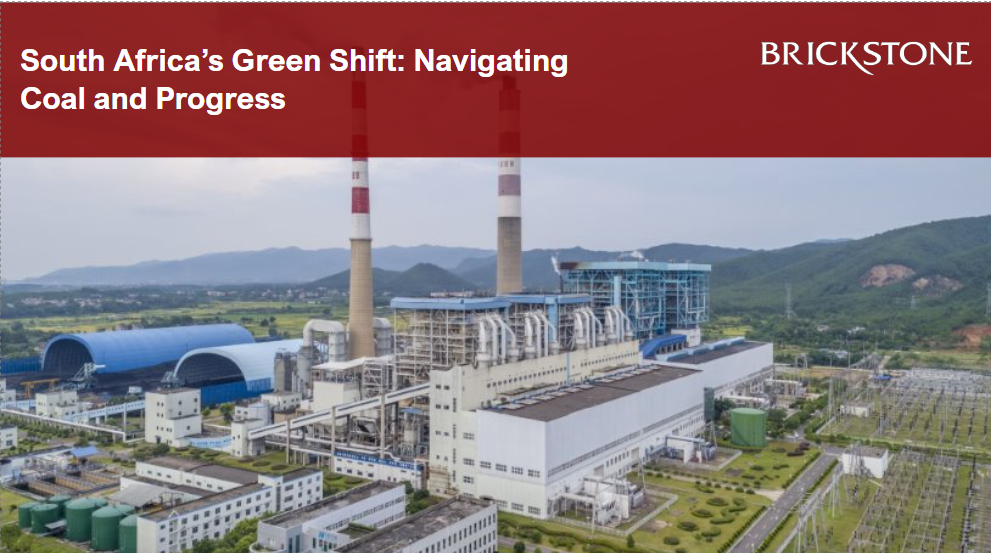South Africa’s Green Shift: Navigating Coal and Progress
South Africa’s Green Shift: Navigating Coal and Progress
The article, South Africa’s Move to Green Energy Was Slowed Down by Government to Protect Coal Mining, provides a critical examination of the complexities surrounding South Africa’s energy transition from fossil fuels to renewable sources. The piece discusses the country’s ambitious renewable energy plans and the obstacles faced due to the government’s commitment to protect the coal industry, which remains a significant part of the economy. This tension between advancing green energy initiatives and sustaining coal mining jobs underscores the broader challenges facing many nations attempting to navigate a just energy transition.
The article highlights the potential of renewable energy to significantly reduce South Africa’s carbon emissions and combat climate change. With abundant resources for solar and wind energy, the transition to greener alternatives could position South Africa as a leader in renewable energy on the African continent. However, despite the clear benefits of shifting toward renewables, the government’s actions have often prioritized the coal sector, which employs thousands of workers and contributes substantially to the national economy. The report notes that the government has been slow to implement policies that would facilitate a quicker transition to green energy, resulting in missed opportunities to capitalize on the rapidly falling costs of renewable technologies.
A significant aspect of the article is the exploration of the political and economic implications of this transition. It underscores how the coal sector has significant political clout, influencing decisions that impact energy policy. The article points to the reluctance of the government to fully commit to renewable energy investments, which can be attributed to fears of job losses in the coal mining sector. This highlights a common dilemma faced by countries rich in fossil fuels—balancing economic stability and job security in traditional energy sectors with the urgent need for sustainable development and climate action.
The report discusses the role of various stakeholders, including civil society organizations and renewable energy advocates, who are pushing for a faster transition to clean energy. These groups argue that investment in renewables could create new jobs and drive economic growth while also contributing to the fight against climate change. They emphasize that a just transition must not only consider the economic implications for coal workers but also the environmental and health benefits of moving away from fossil fuels.
Moreover, the article notes the recent commitments made by South Africa in international climate negotiations to reduce emissions, which further complicates the country’s energy landscape. While these commitments signal progress toward a greener future, the reality of entrenched coal interests poses significant challenges. The report calls for a more strategic approach from the government that acknowledges the need for an inclusive transition, ensuring that workers in the coal industry are supported as the country shifts toward renewable energy sources.
A critical takeaway from the article is the need for comprehensive energy policy reform in South Africa. The government must recognize that transitioning to green energy is not merely an environmental issue but also a socioeconomic imperative. To facilitate this transition, the report suggests the development of clear frameworks and timelines for phasing out coal, investing in renewable energy projects, and creating safety nets for affected workers.
In conclusion, South Africa’s Move to Green Energy Was Slowed Down by the Government to Protect Coal Mining offers a thorough analysis of the complexities surrounding South Africa’s energy transition. It adeptly illustrates the challenges faced by the government in balancing economic interests in coal with the pressing need for climate action and sustainable energy solutions. The article is highly relevant for policymakers, environmental advocates, and industry stakeholders, as it underscores the necessity of crafting policies that support both the environment and the workforce. The call for a just transition is clear, advocating for solutions that prioritize renewable energy development while addressing the socioeconomic implications for communities reliant on coal. As South Africa navigates its energy future, the lessons learned from this transition will be critical for similar efforts across the continent and beyond.
This article by Brickstone reviews the Conversation’s publication on South Africa’s green shift was slowed down by the government to protect coal mining.
Read the complete publication here





